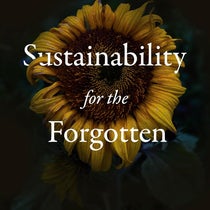Green Reads: Latinx Environmentalisms
“The [Chicanx/Latinx] community is directly speaking to mainstream environmentalists, for whom the preservation of charismatic megafauna in exotic corners of the planet takes precedence over concerns of social justice or racial inequality”
- Sarah Jaquette Ray, Latinx Environmentalisms: Place, Justice, and the Decolonial
Latinx Environmentalisms: Place, Justice, and the Decolonial is a collection of essays giving voice to Latina/o/x and Chicana/o/x experiences in the periphery of the environmentalism movement. Writers pinpoint the slow violence farm workers endure as they are poisoned by pesticides, while predominantly Latina/o/x neighborhoods, such as the cancer clusters of famed McFarland, California, have become dumping grounds for toxic waste. Environmental harms and deadly work conditions overwhelmingly affect people of color and often lead to disabilities that hinder their ability to continue working. Despite this, disabled voices are rarely, if ever, uplifted among mainstream sustainability scholars and activists. To this end, essayist Julie Avril Minich refers readers to Alison Kafer’s “cripped environmentalism… one that looks to disabled bodies/minds as a resource in thinking about future natures differently.”
Latinx Environmentalisms calls out the misaligned efforts by conservationists that aim to “increase Latinx engagement” but ultimately fail to adequately recognize Latina/o/x cultures and histories. Instead, these initiatives fall into a greenwashing that sees land as a consumer good to leverage for the purpose of selling product and inspiring “wilderness worship” that, at best, only manages to achieve an environmental aesthetic. Those same destructive systems tend to view persons functioning outside of this “consumer citizenship” as expendable.
Latinx communities of East Los Angeles have been cut off from the rest of the city almost completely by “phantom limbs” or dead-end streets, that used to be neighborhood roads before the construction of the LA Highways. Meanwhile, Haiti continues to be erased from Latinx culture, activism, and writing while being subjected to all manner of injustices, environmental notwithstanding. Haiti faces a serious threat to their native flora as well as the struggle of “increased contemporary migration via the liquid borders of the Caribbean Sea, the Atlantic Sea and the Gulf of Mexico.” All as the global north continues to literally lay (toxic) waste to the global south, and is simultaneously responsible for the “removal, dispossession, resettlement and land/labor extraction” that has destabilized those very regions.
What We Can Do:
Sarah Jaquette Ray calls “for mainstream environmentalist discourse to do two things”
- “…reflect on the ways [environmentalism] works against social justice, even as it is increasingly willing to recognize interconnections between social and environmental degradation”
- “…stop appropriating ecological Indianness as it simultaneously and hypocritically discredits actual indigenous people and their claims.”
More recommended reading on the subject
- An Environmental History of Latin America by Shawn William Miller
- A Living Past: Environmental Histories of Modern Latin America edited by John Soluri, Claudia Leal, and José Augusto Padua
- Natural Disasters in Latin America and the Caribbean: Coping with Calamity by June Carolyn Erlick
- The Heart of our Earth: Community Resistance to Mining in Latin America by Tom Gatehouse
- Routledge Handbook of Latin America and the Environment edited by Beatriz Bustos, Salvatore Engel-Di Mauro, Gustavo García-López, Felipe Milanez, and Diana Ojed










